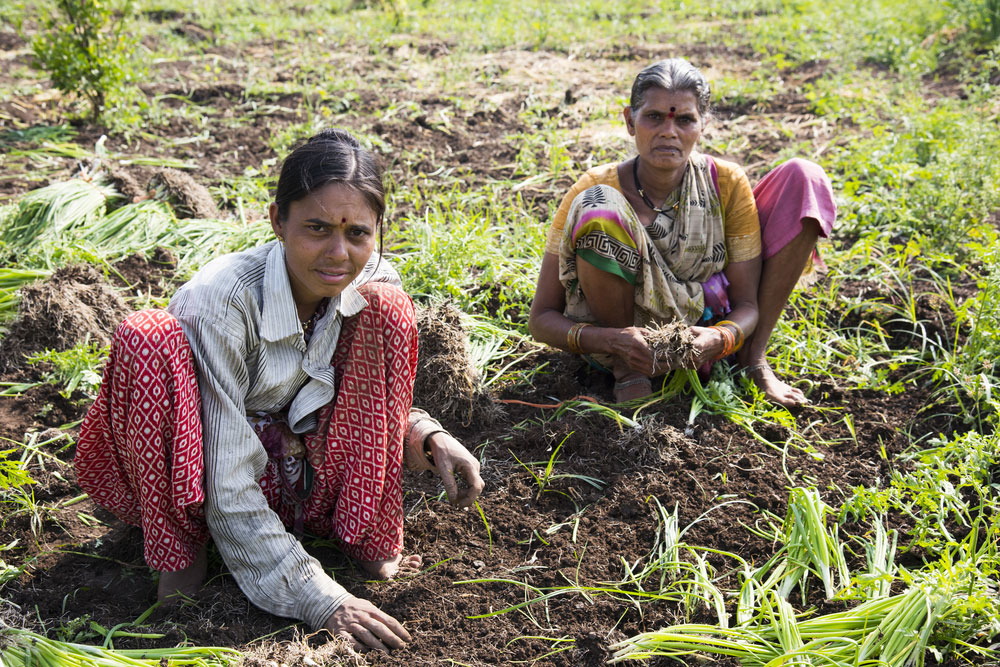A band of bold women is outing alleged predators in newsrooms in the country while another group of women is hitting the streets to bar their gender from the Sabarimala temple in Kerala.
In the middle of the twin turmoil and away from the limelight, as many as 25,000 people from the election-bound heartland had last week set out on a long march seeking an end to a gender disparity that is rarely acknowledged.
“Farmer” is a gender-neutral noun on paper but a masculine sieve in practice. Women agriculture workers who bear the brunt of the backbreaking work in farms are rarely considered “farmer” in the country when it comes to loans although banks insist they practise no such discrimination. Activists say the lack of documents with women workers makes it easy for banks to deny them loans.
When the Ekta Parishad, an organisation fighting for the right to homestead land for all, launched the march last Tuesday from Gwalior in Madhya Pradesh to Delhi, one of its demands was to ensure gender parity among farm workers. The Parishad has sought a Women Farmers’ Entitlement Act to confer the “farmer” status on women workers.
The other demands include the introduction of a National Right to Homestead Act that guarantees at least 10 cents of land for each family, a National Land Reforms Policy, a land tribunal and fast-track courts to resolve land rights cases and a monitoring structure to implement progressive land laws.
The 25,000 sharecroppers and landless labourers were hoping that Union rural development minister Narendra Singh Tomar would address them in Gwalior last Tuesday.
The department of land resources under the rural development ministry deals with land reforms. Minister of state for women and child development Virendra Kumar did attend the meeting on behalf of Tomar.
“Virendra Kumar assured the people that a task force would be set up within six months to hold meetings with organisations fighting for land rights,” Ekta Parishad president P.V. Rajagopal told reporters in New Delhi on Tuesday.
However, “on bringing new laws on homestead land rights and conferring ‘farmer’ status on women workers, he did not commit anything”, Rajagopal added.
He said the people at the meeting began the march to Delhi after realising that the central minister was non-committal on the key demands.
After walking 70km, they reached Morena in Madhya Pradesh where Congress president Rahul Gandhi met them on Saturday.
Rajagopal claimed that Rahul had agreed to all the demands of the Parishad, following which the march was called off and they decided to wait till the Assembly elections are over in mid-December.
The Congress assured the Parishad of the implementation of these demands in Punjab and Karnataka, where the Congress is either ruling or is part of the alliance in power, Rajagopal said.
According to the Parishad leader, Rahul had said the Congress would spread awareness and sensitise candidates on these issues during the year-end Assembly elections in Madhya Pradesh.
“Rahul Gandhi also promised to take the agenda forward if elected to power,” Rajagopal said.
The rural development ministry had signed an agreement with the Parishad in 2012 committing to bring in a law to confer homestead land rights and introduce a land reforms policy for the distribution of land among the landless.
The then UPA government had prepared a draft law to provide 10 cents of land to each landless family. But the draft law was shelved after the NDA came to power.
The Parishad had held a meeting with Prime Minister Narendra Modi in April 2015 to seek his intervention on the key demands. Nothing much has happened so far.
According to government estimates, nearly eight million rural households have no house of their own. Most of the landless are Dalits or from the backward classes.










